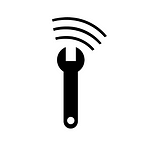Housing a Changing City…with a Twist
Paola Pelletier-Ozuna (she/her) is a 2021 Summer Fellow with the Mayor’s Office of New Urban Mechanics, working with the Housing Innovation Lab and the Department of Neighborhood Development to develop tools to help decision-making and process management for mixed-use housing and public building projects.
When my family moved to the Boston area from the Dominican Republic in the mid-2000s, we didn’t have many housing options that were affordable. My mother worked as a baker earning minimum wage ($6.75 per hour in 2006), and like many immigrant families we had to get creative with our living situation. As such, we moved in with my uncle to a small attic apartment in Chelsea where my mom, little sister, and I shared a small bedroom. The building was old, the wooden stairs creaky, and I still remember our panic when we realized the unstable triple-decker moved with the wind during rain or snow storms. But, we had to stay there. We had no other choice.
Our situation was not unique then and it is not unique today for many residents of Boston. Over the years, finding affordable housing options in the city has become more challenging than ever. As our population density grows and property value goes up, a significant number of families have been left with limited options for housing. Boston’s city leadership knows this and they have made a commitment to build more affordable housing for residents by 2030.
In 2014, with the release of Housing A Changing City: Boston 2030, former Mayor Martin J. Walsh called for the creation of a Housing Innovation Lab (iLab). As the city recognized the urgent need for exploration and acceleration in the housing field to help address its growing housing needs. In 2015 the iLab was officially created.
This summer I collaborated with the iLab to accomplish two main goals in the housing with public assets initiative in Boston. First, develop tools to better engage community members and local stakeholders. Second, to expand current internal agency decision making by designing comprehensive process maps. More specifically, my work has revolved around “housing with public assets”, more simply put, we can use core community assets (like libraries, fire stations, and municipal parking lots) to increase the city’s affordable housing stock — inspired by efforts ongoing in places like Chicago, Brooklyn, DC, Miami and other cities. The biggest concentration of my work this summer has been with public libraries.
Libraries are vital cornerstones of our communities. They are able to provide community residents with research support, internet access, literary experiences, free outdoor WiFi zones, and a sense of belonging. Our libraries can also help solve the housing shortages that are riddling urban dwellers all across the country.
Now, let me explain. Although you, like me, might be imagining living out a childhood dream of living in a library, that is not what we are referring to. By using aging branches as sites for development, new libraries may rise with affordable apartments on top, adjacent to, or in the same plot of land as libraries.
As I end my time with MONUM, I feel fortunate to have worked on a project so deeply personal to me. Housing is not a luxury — it is a right and this summer I’ve experienced the power of creativity, innovation, and collaboration among city agencies and members of the community to make it happen. I’m excited to see what the future holds for housing with public assets in Boston now that we understand how with creative use of our public assets and land we can provide a vital necessity — housing that allows residents to experience a sense of stability, community, and belonging.
Paola is interested in looking at place-making, community engagement, and urban planning through an equity lens. Her decade-long commitment to public service as a community organizer, youth advocate, and nonprofit leader in the Boston area led her to pursue a Master of Public Policy at Tufts University. As a policy student, Paola’s focus has been on spatial and environmental justice, housing policy, public health in the built environment, and green urban design. When Paola is not attending lectures and writing essays for school, she works full-time as the Program Director at Enroot, a community-based nonprofit in Cambridge and Somerville with the mission to empower immigrant youth to achieve academic, career, and personal success through inspiring out-of-school experiences. In her free time, Paola enjoys building connections, biking with friends, exploring small businesses in Boston, and going on a daily 5-mile walk along the Charles River.
About the Fellowship:
The New Urban Mechanics Summer Fellowship is designed for entrepreneurial students and professionals interested in working in public service. During this highly selective eight-week program, summer fellows work as a team and on their own projects, generating and implementing creative and thoughtful new prototypes to benefit the City of Boston.
